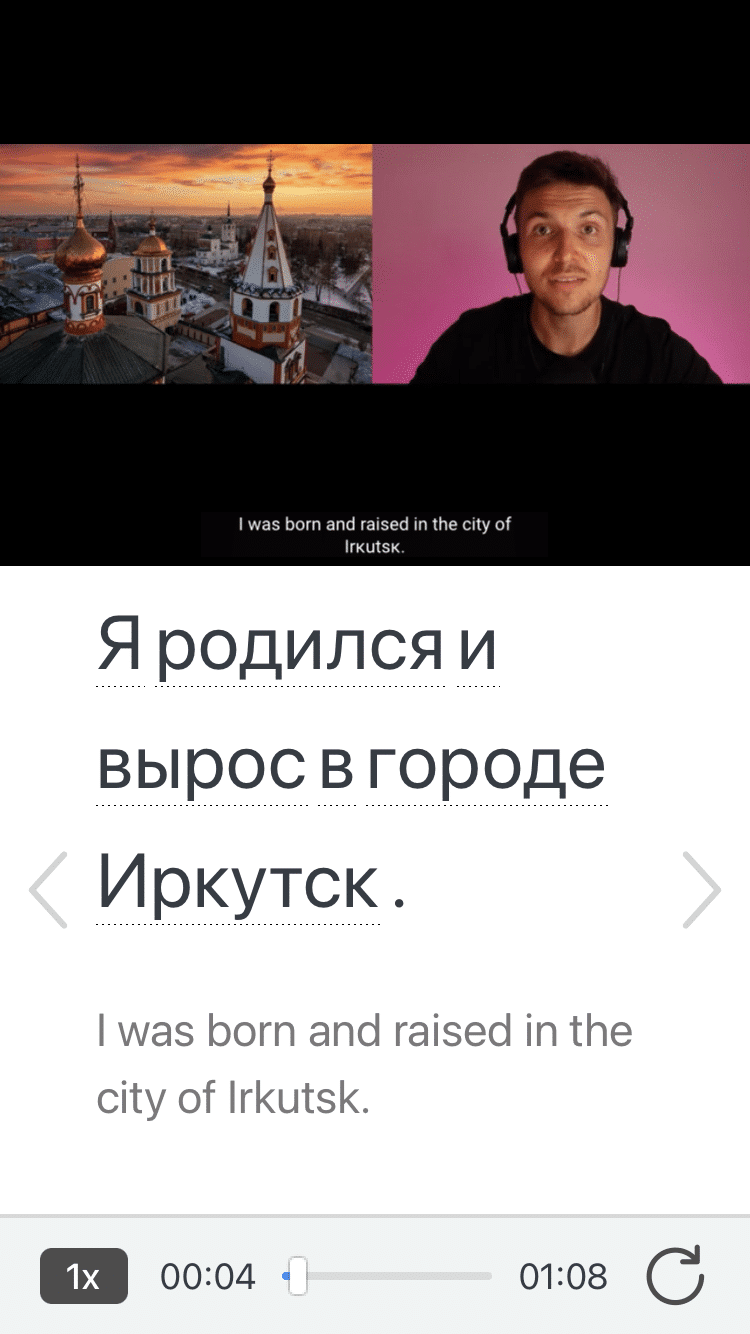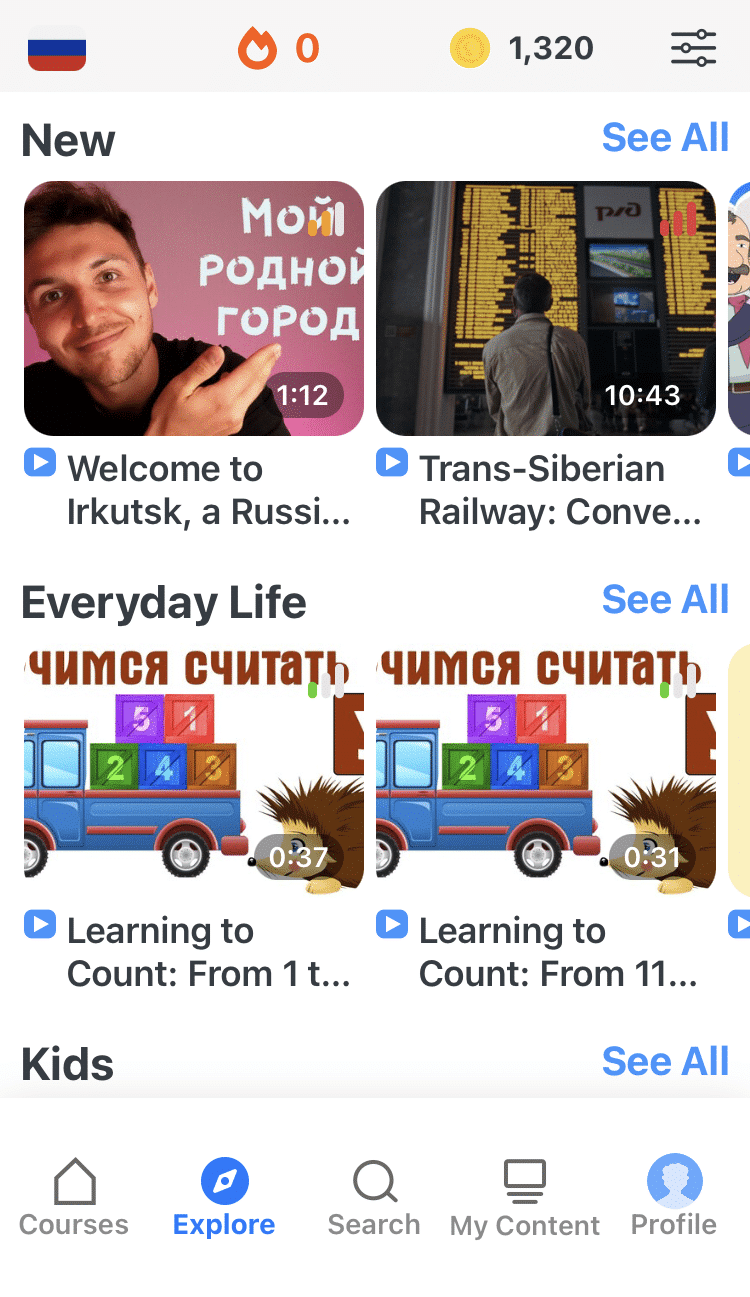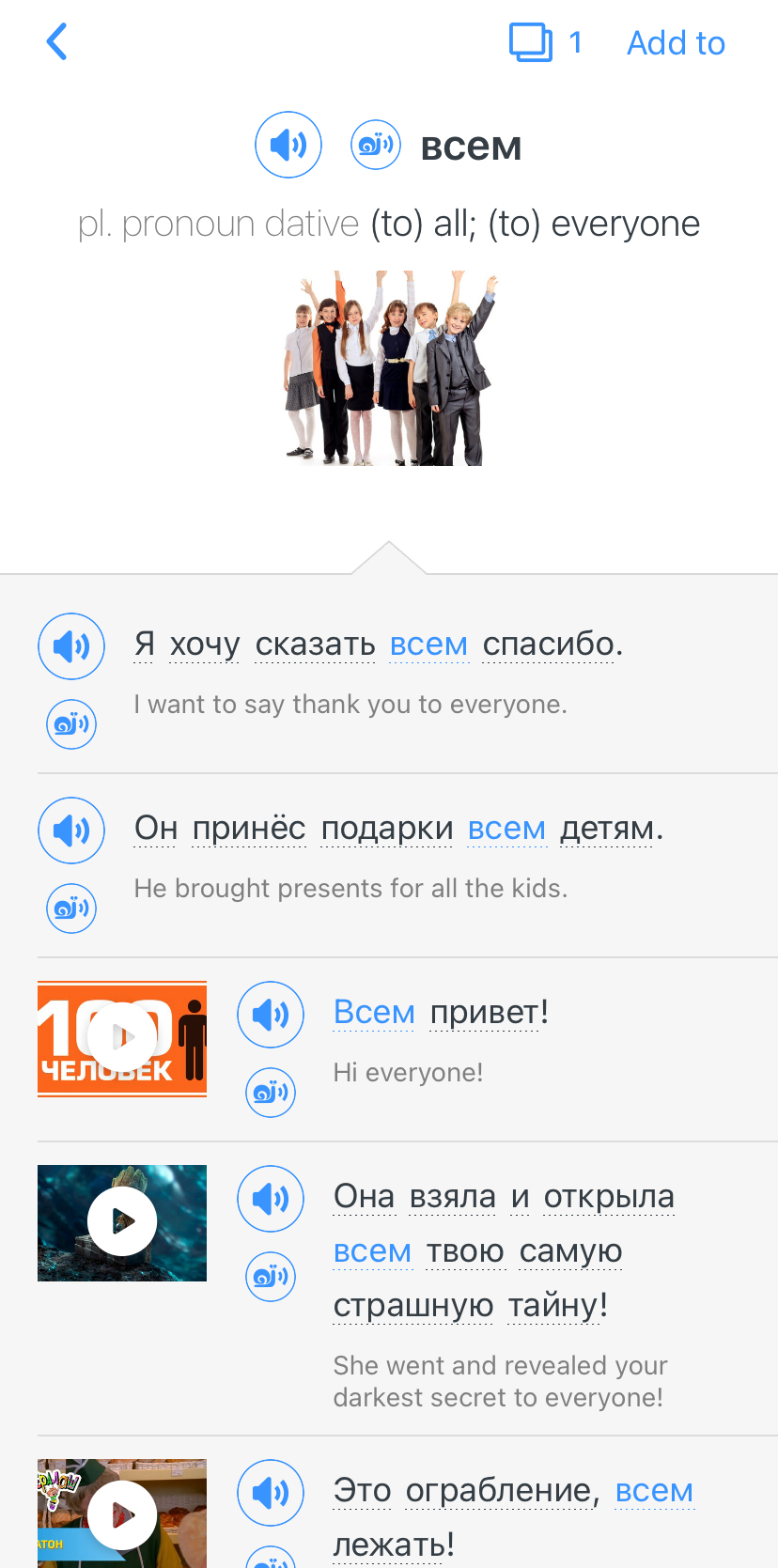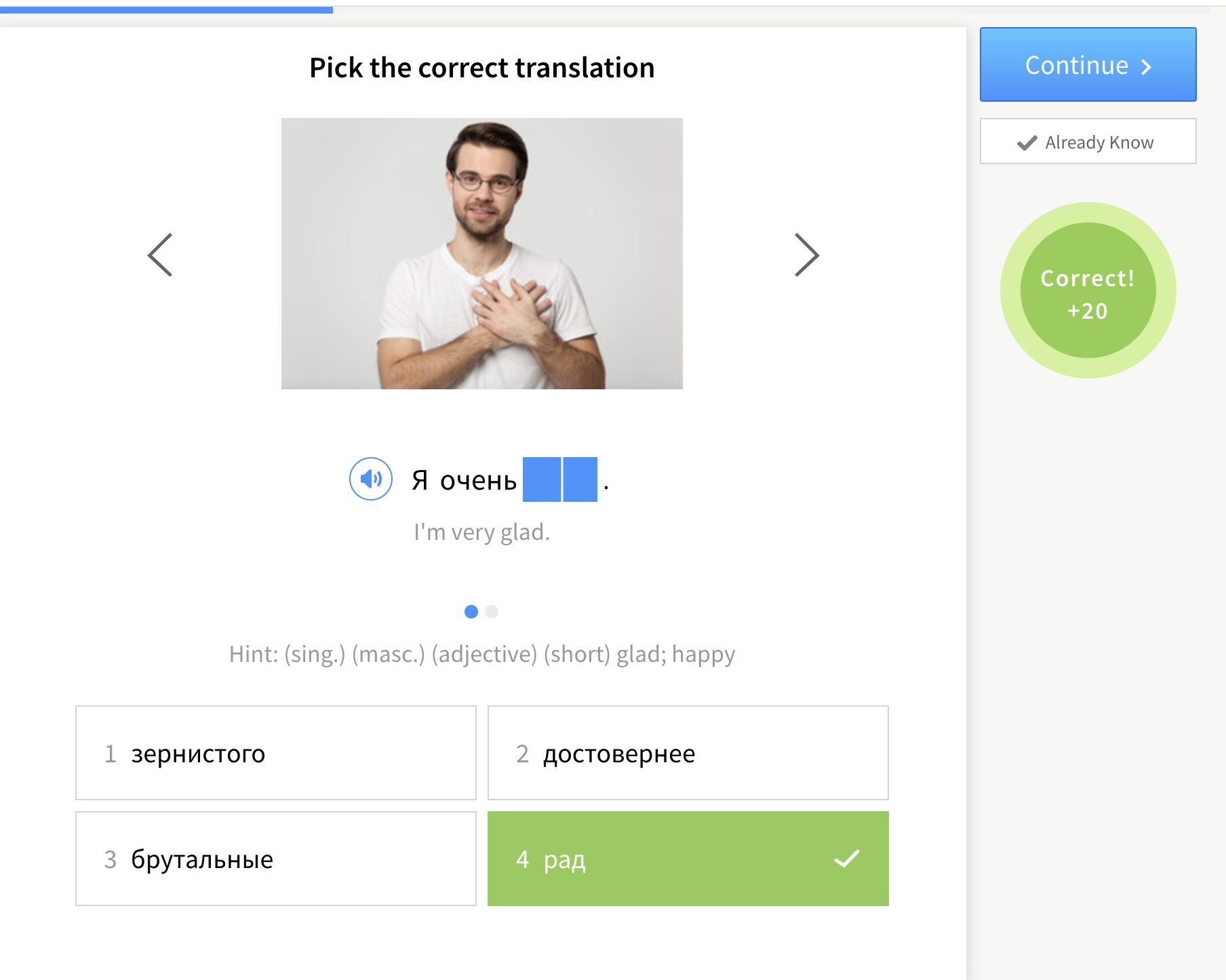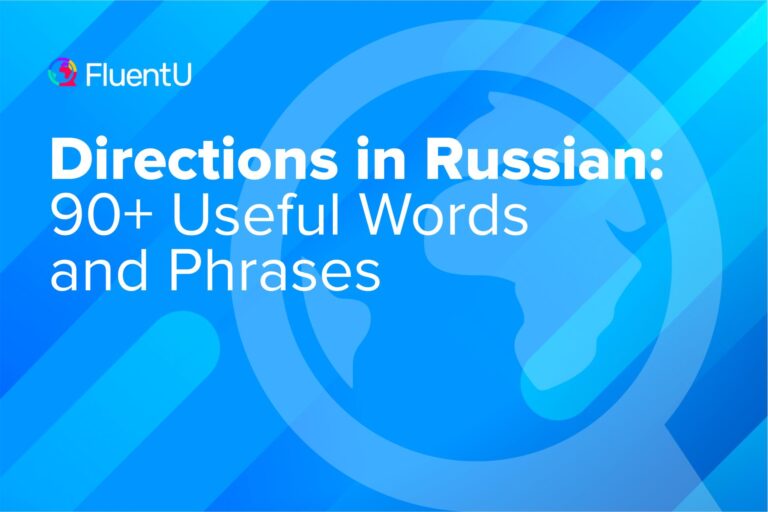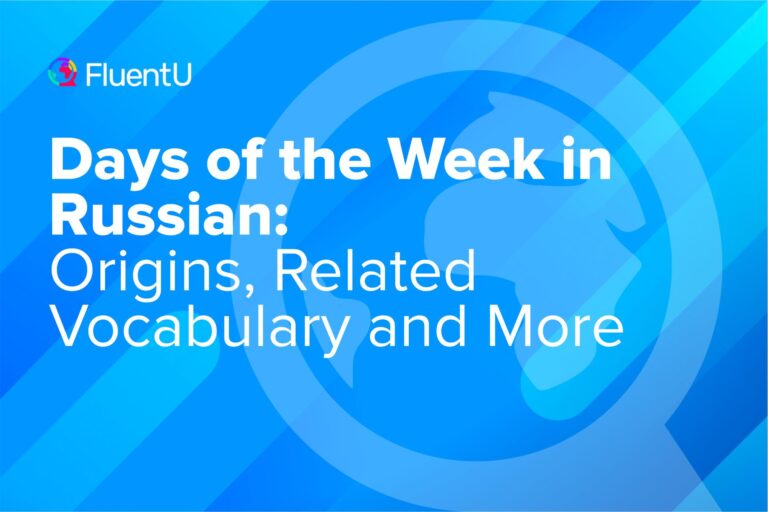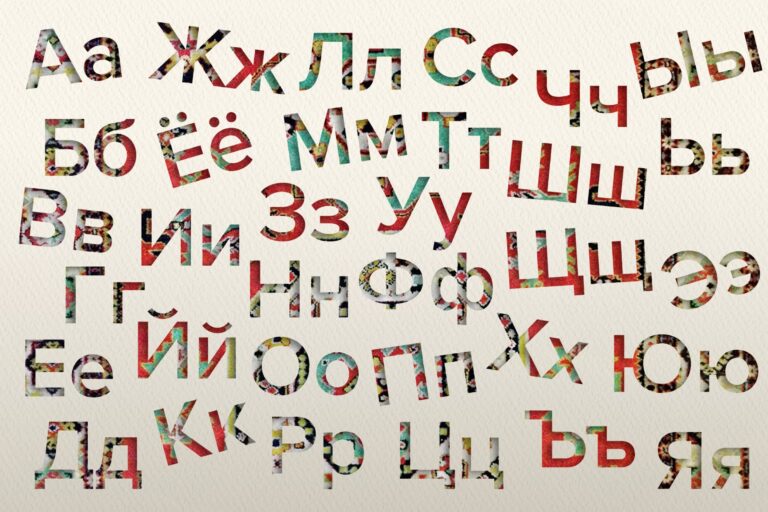Where is Russian Spoken? 16 Countries with the Most Speakers
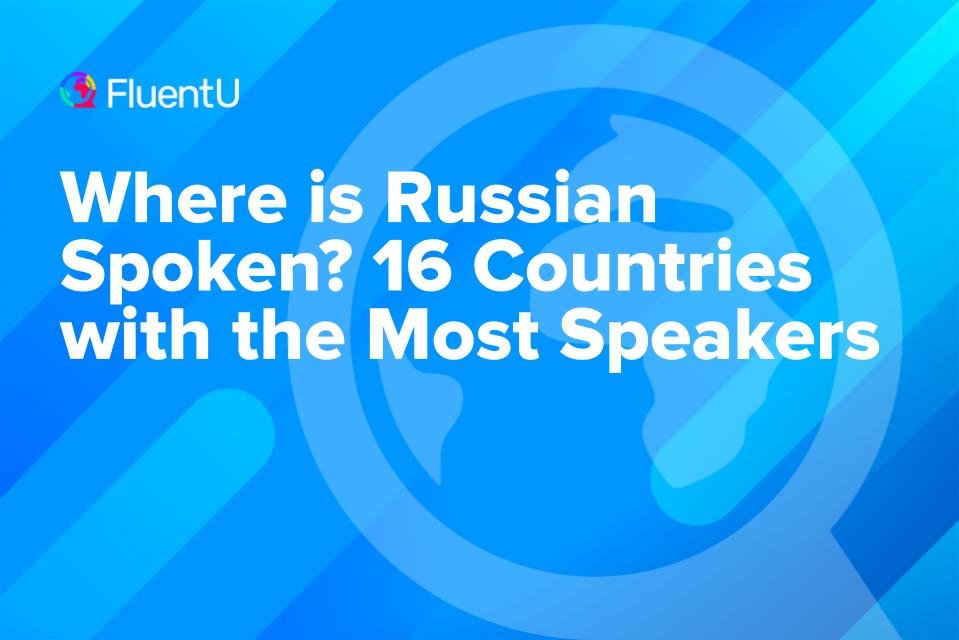
While many people only associate the Russian language with Mother Russia herself, it’s actually spoken in far more countries than that.
There is an estimated total of 260 million Russian speakers around the world. This number includes both those who speak it as native speakers and those who speak it as a second language. Roughly 155 million are native speakers.
Read on to find out more about which countries speak Russian and where you can flex your language skills.
Download: This blog post is available as a convenient and portable PDF that you can take anywhere. Click here to get a copy. (Download)
Countries that Speak Russian
The countries that have Russian as an official language are Russia, Belarus, Kazakhstan and Kyrgyzstan.
Other countries that have a high percentage of Russian speakers are those that were at some point part of the Soviet Union (also known as the USSR) such as Ukraine, Armenia, Azerbaijan, Estonia, Georgia, Latvia, Lithuania, Moldova, Tajikistan, Turkmenistan and Uzbekistan.
Countries with large Russian-speaking immigrant communities include the US, Israel and Germany.
The numbers below show the number of native speakers in each country who speak Russian as their mother tongue.
Russia

Number of Russian Speakers: 118 million (82% of the population)
Russia spans 11 time zones in Europe and Asia, occupying more land than any other country in the world. Russian is the only official national language, though it’s estimated that Russia’s ethnic groups speak another 270 languages and dialects, most notably Tatar and Chechen.
Ukraine
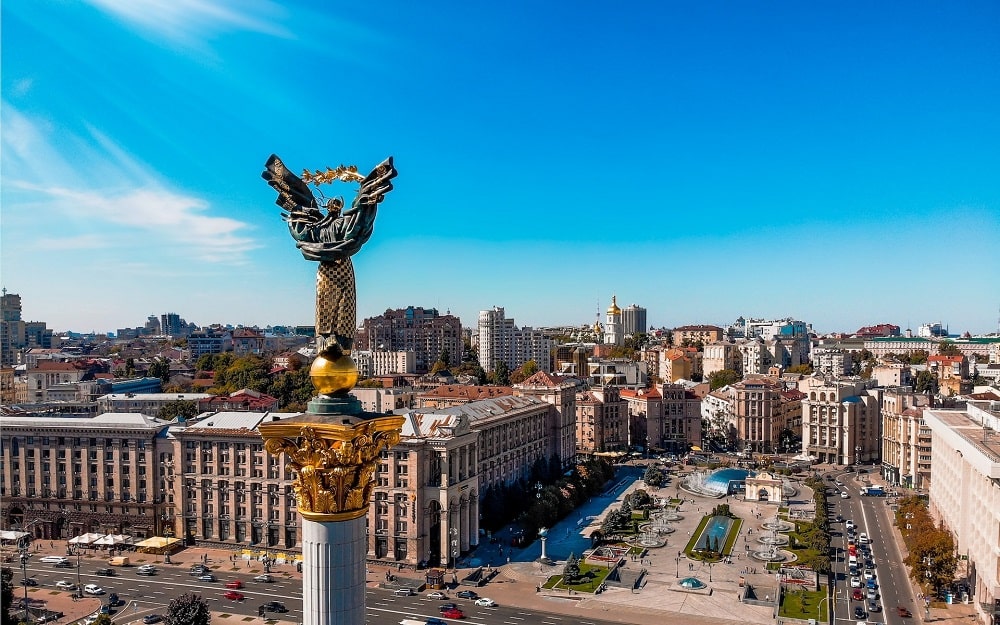
Number of Russian Speakers: 12 million (32% of the population)
Ukrainian is the state language of Ukraine, but some Ukrainians consider Russian their native language and most others know it as a second language. The eastern and southern regions of Ukraine tend to have the highest number of Russian speakers due to their proximity to Russia.
Belarus
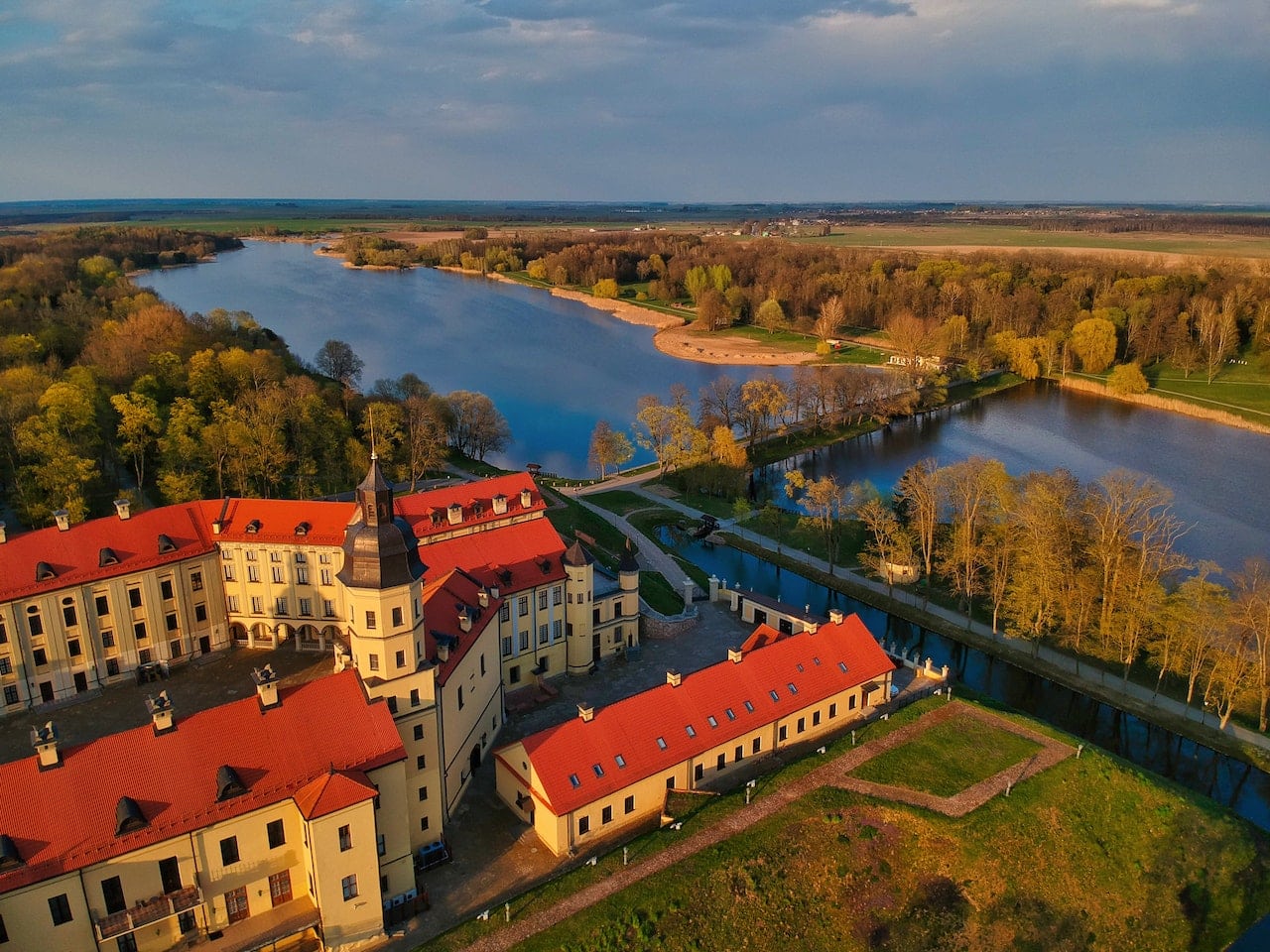
Number of Russian Speakers: 6.5 million (70% of the population)
Belarus is a country in Eastern Europe. Most Belarusians speak Russian, and some consider it their primary language. Both Russian and Belarusian enjoy official status, but Russian is dominant in entertainment, education and many other facets of daily life.
Uzbekistan
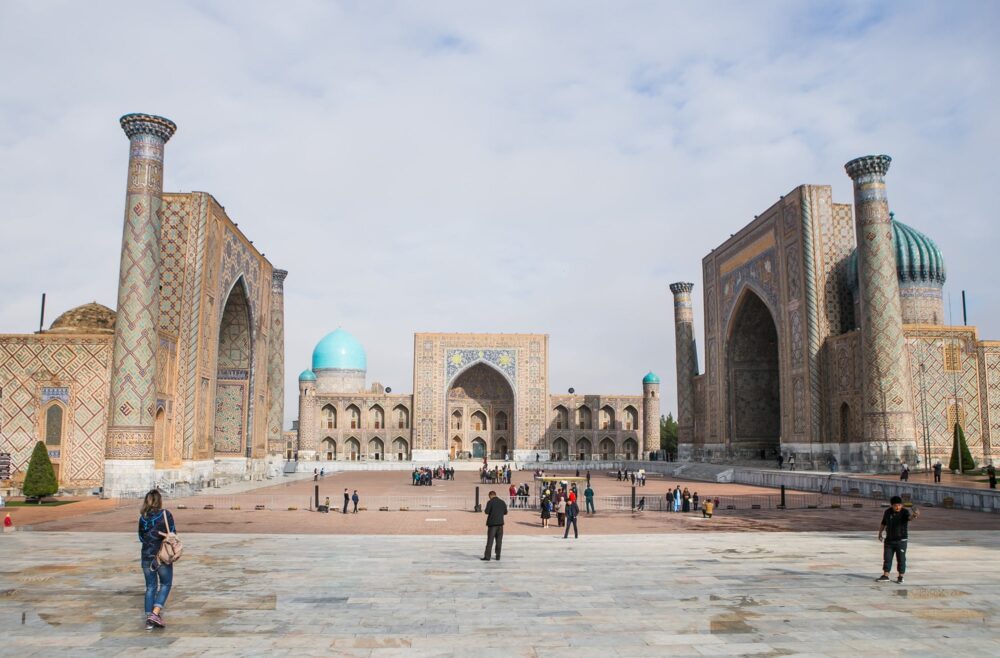
Number of Russian Speakers: 5 million (15% of the population)
Nestled in Central Asia, Uzbekistan boasts a diverse cultural tapestry. Russian is predominantly spoken in urban areas, such as Tashkent, the capital. The language is prevalent in business, some areas of education and among the cosmopolitan population.
Kazakhstan
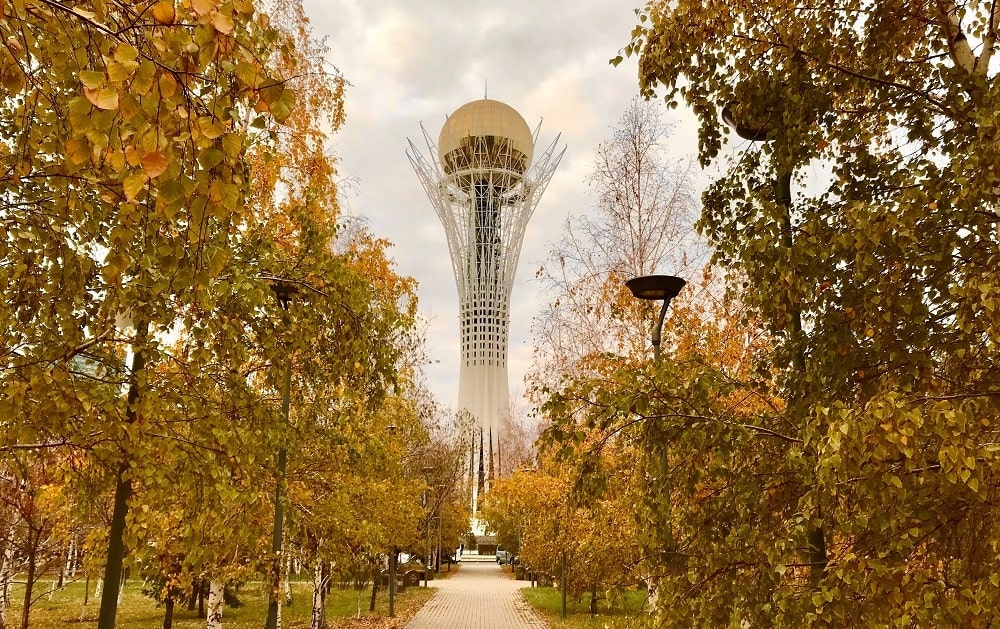
Number of Russian Speakers: 3.6 million (20% of the population)
Kazakhstan is a diverse Central Asian nation with dozens of ethnic groups. Although Kazakh is the state language, Russian is still considered an official language in Kazakhstan. Many residents use it as the main language at home and work, and the vast majority of the population speaks at least some Russian.
Germany
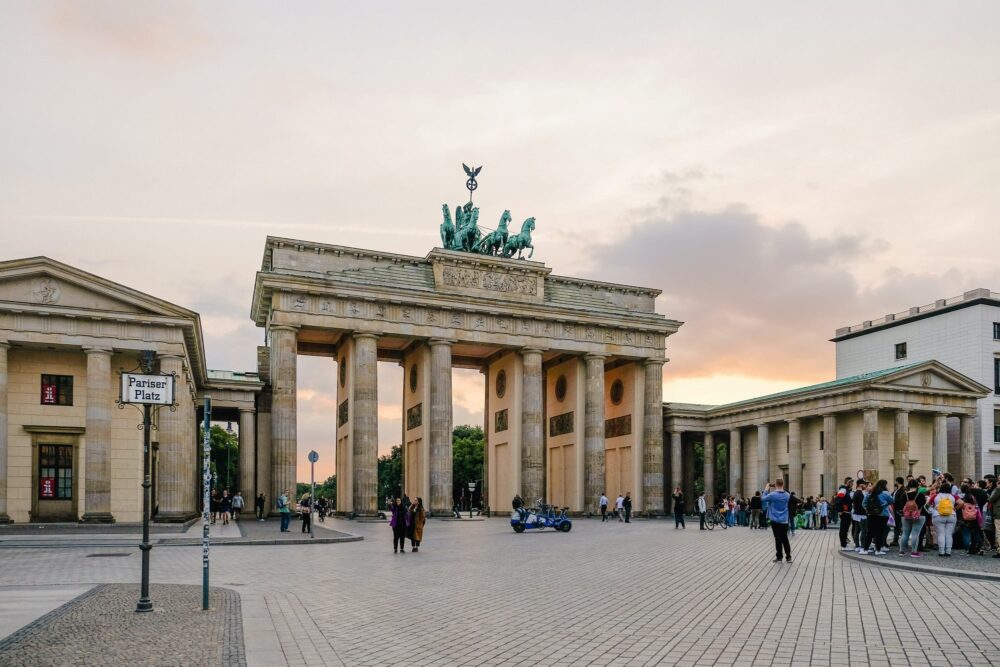
Number of Russian Speakers: 3 million (3.6% of the population)
Situated in Central Europe, Germany’s Russian-speaking community is most concentrated in the former East Germany. Cities like Berlin and Leipzig have substantial Russian-speaking populations, a legacy of historical ties during the Cold War and post-Soviet immigration.
Israel

Number of Russian Speakers: At least 1.3 million (14% of the population)
Israel is in the Middle Eastern region. Russian Jewish immigrants from the USSR moved to Israel, bringing their language with them. Hebrew is the official language, but Russian is widely spoken, and there are Russian-language TV channels, newspapers and schools in the country.
Turkmenistan
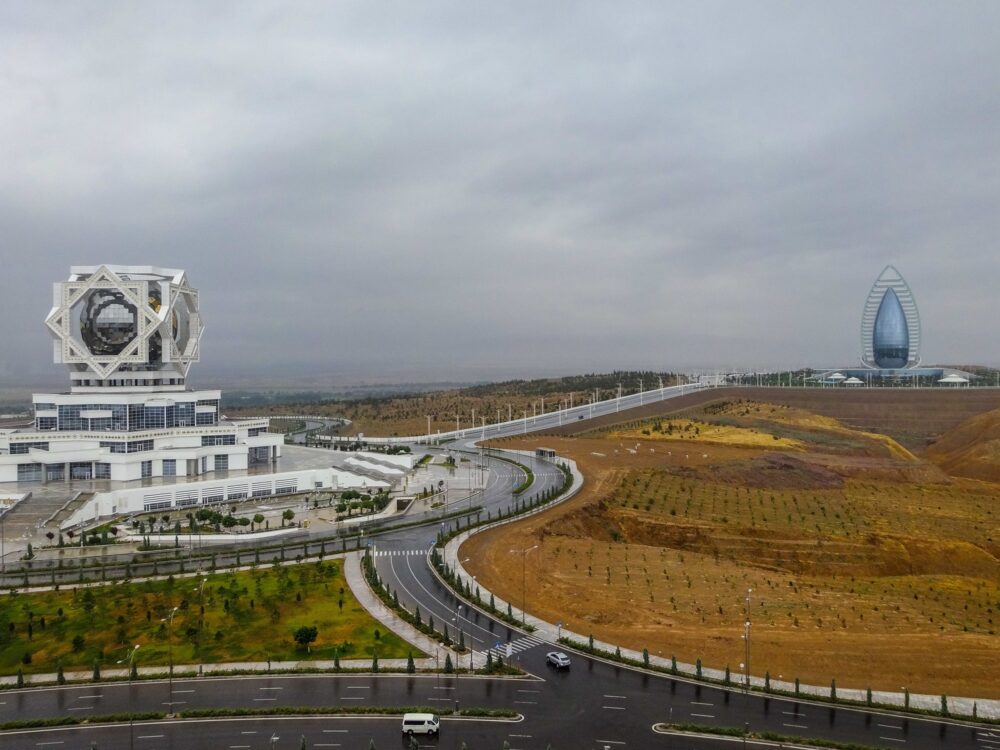
Number of Russian Speakers: At least 750,000 (12% of the population)
Turkmenistan, a diverse Central Asian country, emphasizes Turkmen as the state language. Russian is used in administrative and urban settings, with Ashgabat being a prominent city where Russian is prevalent, particularly in government and business.
Tajikistan
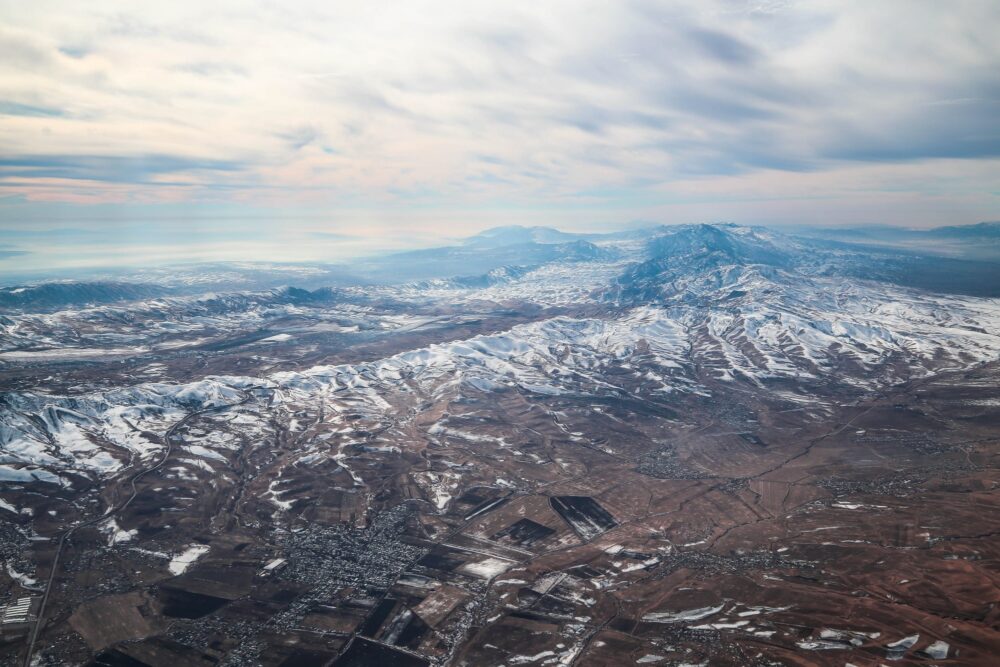
Number of Russian Speakers: At least 690, 000 (7% of the population)
Another country in Central Asia, Tajikistan celebrates its Persian-influenced culture. While Tajik is the official language, Russian is spoken by a significant portion, especially in urban centers like Dushanbe. It plays a role in commerce, international communication and occasionally between different ethnic groups.
United States

Number of Russian Speakers: At least 660,000 (0.2% of the population)
Like most languages spoken in the United States, Russian was brought in by immigrants, so your language skills may come in handy wherever there are large Russian immigrant communities. For example, the Brighton Beach neighborhood in Brooklyn is home to a sizable population of Russian speakers.
Latvia
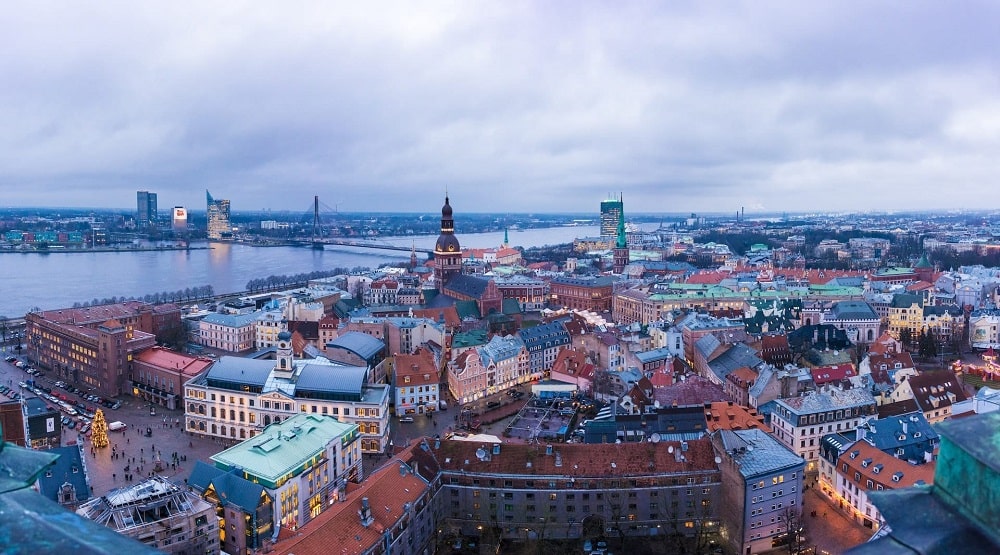
Number of Russian Speakers: At least 630,000 (33% of the population)
Latvia is a Baltic nation and member of the European Union that was once part of the Russian Empire and later the USSR. While Russian is considered a foreign language, about a quarter of the population uses it as their primary language.
Kyrgyzstan

Number of Russian Speakers: At least 620,000 (9% of the population)
Kyrgyzstan is a Central Asian country where the Russian language enjoys official status alongside Kyrgyz. Russian is commonly used for both business and high-level government discussions. A relatively small portion of the population considers Russian their native language, but many others still speak it fluently.
Estonia
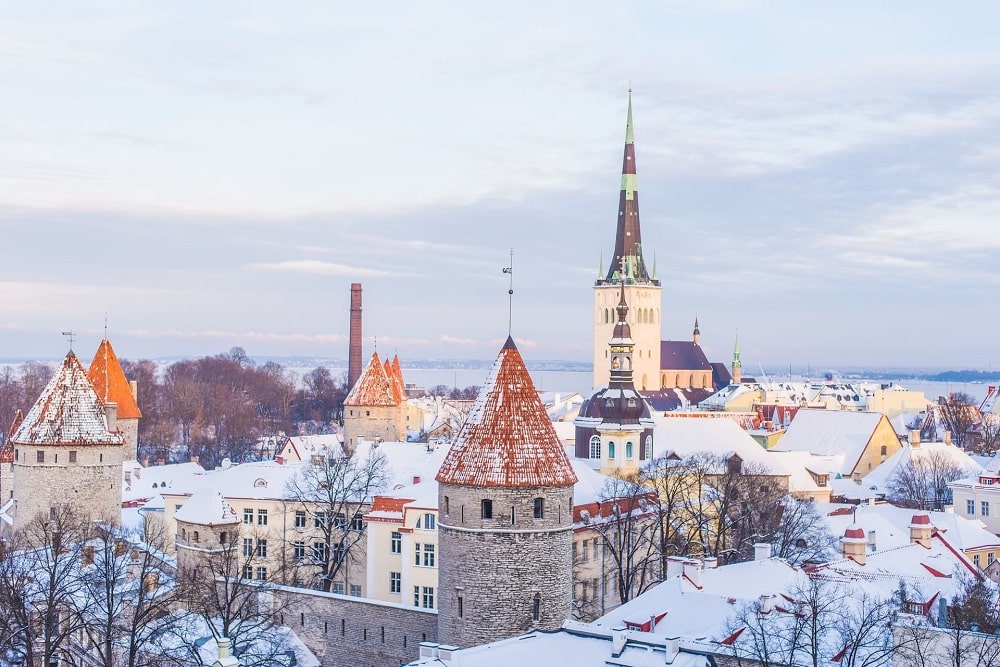
Number of Russian Speakers: At least 370,000 (27% of the population)
Estonia is a Baltic nation that was part of the USSR and is now a member of the European Union. Estonian is the country’s official language and Russian is considered a foreign language. However, many residents use Russian as their main language, particularly in the eastern part of the country that borders Russia.
Georgia
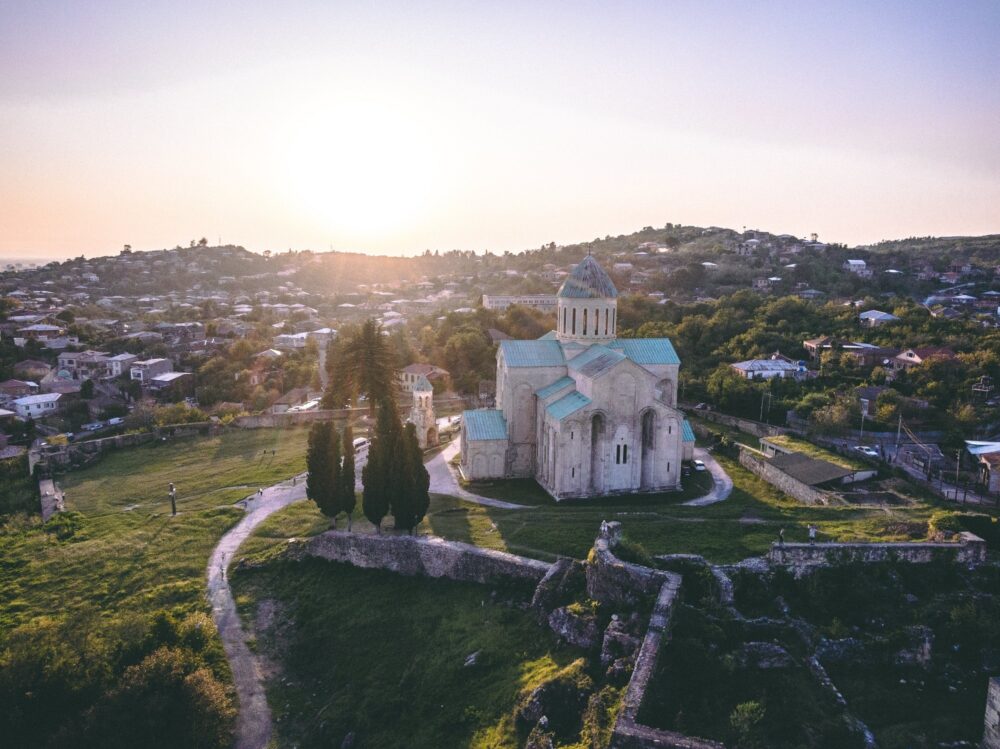
Number of Russian Speakers: At least 320,000 (9% of the population)
Located at the crossroads of Eastern Europe and Western Asia, Georgia’s Russian-speaking population is concentrated in regions like Abkhazia and South Ossetia. Tbilisi, the capital, also has a notable Russian-speaking community, contributing to the country’s cultural diversity.
Azerbaijan
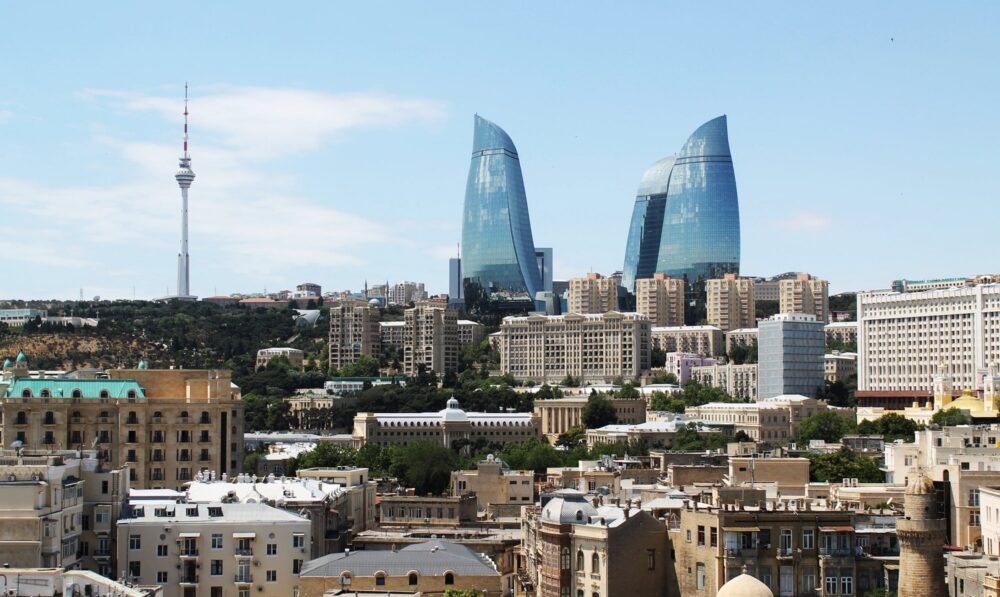
Number of Russian Speakers: At least 240,000 (2.4% of the population)
Straddling Eastern Europe and Western Asia, Azerbaijan has a diverse linguistic landscape. Russian is spoken in the capital Baku, primarily in diplomatic and business circles. The language also plays a role in connecting Azerbaijan with Russian-speaking countries and facilitating international interactions.
Moldova

Number of Russian Speakers: At least 230,000 (9% of the population)
Moldova is an Eastern European country wedged between Ukraine and Romania. Like much of Eastern Europe and Central Asia, Moldova was once part of the Russian Empire and the USSR. While Russian isn’t as widely spoken as either Moldovan or Romanian, it remains the main language of some of the population.
A History of the Russian Language
The Russian language has a rich history dating back to the 9th century when East Slavic tribes around Kiev adopted Christianity, bringing the Cyrillic alphabet and Old Church Slavonic. Over the centuries, Russian evolved through influences like the Mongol invasion and Tsarist efforts to standardize and elevate the language.
The 19th century witnessed a literary golden age, with renowned authors like Pushkin, Tolstoy and Dostoevsky contributing significantly to the development and refinement of the language.
The Soviet era brought further changes, with the promotion of a standardized form of Russian and the suppression of regional dialects. Post-Soviet Russia saw a renewed interest in linguistic diversity, with efforts to preserve and revitalize minority languages.
Today, Russian stands as one of the most widely spoken languages globally, reflecting a complex linguistic journey shaped by historical, cultural and political forces, which you can explore through immersive language programs like FluentU.
FluentU takes authentic videos—like music videos, movie trailers, news and inspiring talks—and turns them into personalized language learning lessons.
You can try FluentU for free for 2 weeks. Check out the website or download the iOS app or Android app.
P.S. Click here to take advantage of our current sale! (Expires at the end of this month.)
Why Is Russian So Widely Spoken?
- The USSR encouraged its spread. Russian language and culture spread throughout history because of policies designed to assimilate diverse populations under one shared language. The Soviet era massively contributed to this since Russian was the main working language used across the USSR’s vast territory.
- Official UN status. Today, Russian remains one of the six official languages of the United Nations. Because of this, many people looking to work in an international setting choose to learn Russian.
- Sphere of influence. Russia is a big country, and it has a sphere of influence. People in neighboring countries often learn the Russian language to expand their opportunities to work, study and travel.
- Russian immigrants. Russian immigrants have relocated to virtually every corner of the world, and some of them choose to continue using their native language. Because of this, you can find pockets of Russian speakers in different countries.
While these 16 countries represent some parts of the world where Russian is spoken, this list isn’t comprehensive. So the next time you travel, listen up! You may hear Russian when you’re not expecting it!
And One More Thing...
If you want to learn Russian with authentic materials but need a little extra support, then let me tell you about FluentU.
FluentU lets you consume the same content as native Russian speakers, but with tools to make it easier to pick up the language while you watch. You’ll learn Russian as it’s actually spoken by real people, unlike programs that use scripted content.
You can bring our learning tools directly to YouTube or Netflix with the FluentU Chrome Extension, or check out our curated video library full of clips that cover a wide range of topics, as you can see here:
FluentU brings native videos within reach with interactive subtitles. You can hover over any word to instantly see its meaning, an image, and its audio pronunciation. Click on the word for additional examples and to add it to your flaschards.
To reinforce what you've learned, you'll complete engaging exercises and see more examples of the key words from the video. FluentU keeps track of the vocab you’re learning, and gives you extra practice with words you find challenging.
Start using the FluentU website on your computer or tablet or, better yet, download the FluentU app from the iTunes or Google Play store. Click here to take advantage of our current sale! (Expires at the end of this month.)

